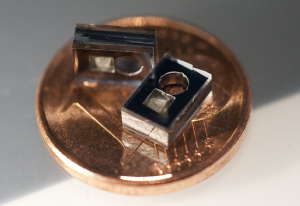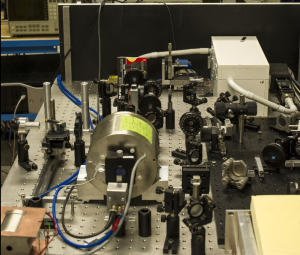Program
Lectures
- Introduction to TF – Basic concepts and vocabulary (quality, certification, traceability etc.), and technical issues (oscillators, frequency standards, accuracy, stability, phase noise, jitter, physical environment, etc.).
- Measurement methods and experimental techniques – Spectra (phase noise and L(f), amplitude noise), variances, frequency measurement and comparison.
- Atomic clocks – Physics, traditional clocks (atomic beam, vapor cell and maser), cold atoms, optical clocks, small-size clocks.
- Oscillators – RF and microwave oscillators, cavity-stabilized lasers, optical frequency combs.
- Timing and applications – Time scales, navigation, frequency transfer and synchronization.
- Physics, applications, and trends.
Hands-on Laboratory Sessions
 Every day, the participants do real experiments and measurements
Every day, the participants do real experiments and measurements
- Frequency stability and AM/PM noise,
- Data analysis
- Global Navigation Satellite System GNSS (GPS, Galileo, etc.)
- Resonators and oscillators
- Atomic clocks
Social Events and Visits
- Visit at the Observatory of Besançon
- FEMTO-ST Laboratory Tour
- Visit at the Time Museum, Besançon downtown
- Social dinner
- Astronomy session at the Observatory (depending on weather). Observe celestial bodies, and adjust your watch to stars using the ancient methods and instruments
The EFTS is a training course, not a conference
- Program and topics are decided by the Scientific Council
- All lecturers are invited by the Scientific Council (however, suggestions from qualified people are welcome)
- There is no “call for papers” addressed to the students
- There are no lectures and no posters presented by the students
Preliminary Timetable
Download the preliminary timetable (pdf)


Monday "Science, beer and chips" session
Informal discussions about the research projects running in Besançon, around posters, beer and chips. This session is an opportunity to have private discussions between students, lecturers and our researchers. It helps to plan the Friday laboratory tour, and it may open the opportunity for short private visits on specific topics in the free time during the week. Students shall not bring their own posters.
Site Map
Current Session
Program
Scientific Council
Registration and Policy
Venue and Accommodation
Links
Thanks
Contact
Previous EFTS sessions, since 2013
The EFTS is kindly hosted by SUPMICROTECH ENSMM

